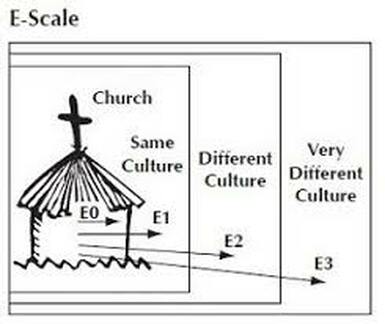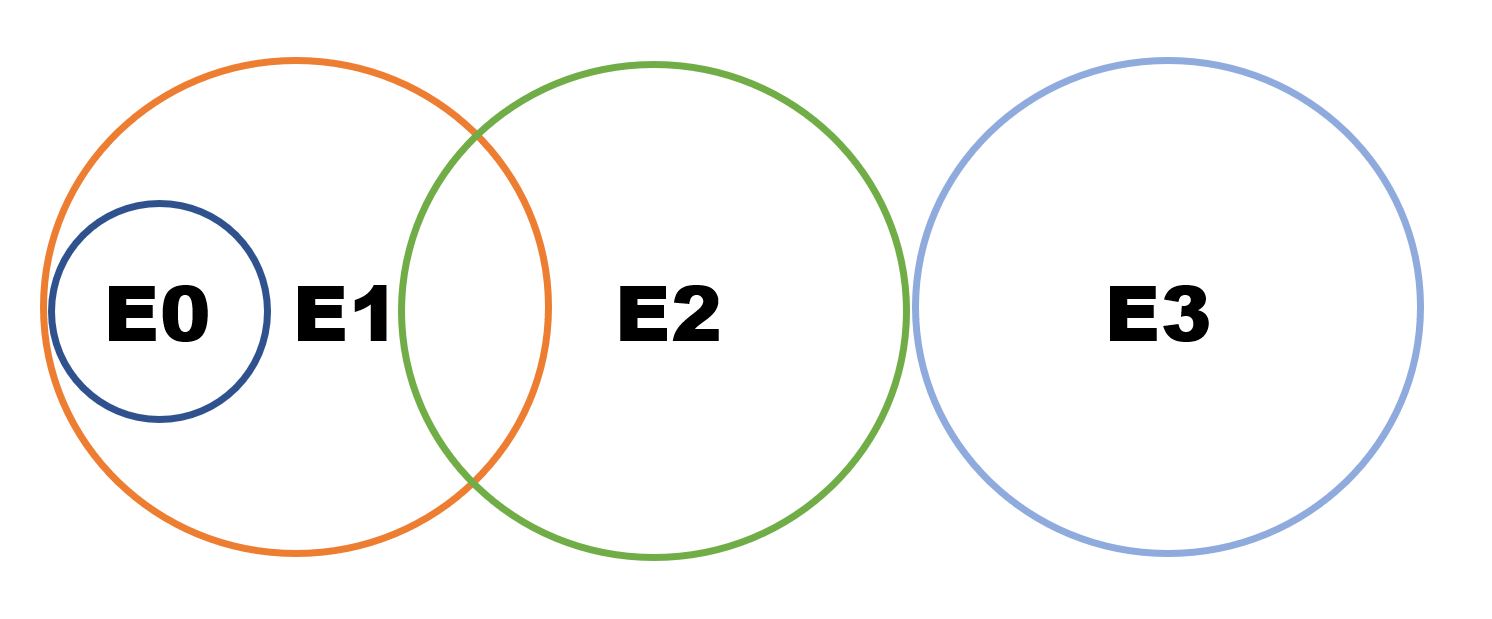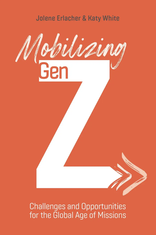These are the types of people who you probably know. One of the challenges of sharing the gospel and making disciples is that the people who the Lord brings into our lives are from vastly different backgrounds. These differences create a need for discernment and understanding as we build relationship and communicate with each of them. A conversation that goes well with one might implode into tension with another. It is these differences that create vastly different kinds and degrees of challenge for communicating the truth of the Gospel. There are always barriers between us and the people we wish to reach. Those barriers could be simple or complex. Culture, language, worldview, religious background, and personal experiences are all part of the mix of barriers that can challenge our ability to share the gospel. Missiologist Ralph Winter created a tool that helps describe these difference. It’s not a diagnostic tool to use on our friends or the new immigrant down the street but it does help us understand why our invitation to come to our church may be falling on deaf ears. The tool is called the E-Scale. In Winter’s own words: “The E-Scale helps compare the cultural distances that Christians need to move in order to communicate the gospel with others. E0 refers to evangelism of church-going Christians. E1 extends to the very same culture through one barrier, that of “church culture.” E2 evangelism presses into a close, but still different, culture. E3 evangelism pushes to very different cultures.” (read the original article here) E0 - The people who are within the church walls. They may be backslidden and asleep but they are in church on a somewhat regular basis. They may be there because mom and dad drag them there each week. Regardless, they have a basic understanding of church culture and church language and have a mostly Christian worldview. E1 - Those who have not ever entered the church but are part of the greater culture of the community or country where the church resides. These are the people who you work with and live by. They grew up watching the things you watched on TV, eating the foods you eat, reading the books in school that you read. They just don’t go to church and outside of an occasional funeral or wedding, never have. Church culture is mostly foreign to them. E2 - Those who come from similar but different cultures. While there are some cultural similarities, significant barriers begin to emerge. They may speak another language. They may have grown up with significant worldview differences. They may be from a different religion. Church culture is foreign to them. E3 - Those who come from cultures that are almost completely different. Where someone who is E2 may have one or two barriers, E3 represents the people where barriers are found in every major area of life: language, culture, worldview, religious background, etc. Church culture is utterly foreign to them and may be offensive. It must be noted that this is not a grading scale to be used in an us versus them them sort of way. It is a tool for anyone who wants to go and make disciples. An atheist from New York would be an E1 for me but would probably be an E3 for a missionary from China. It must also be noted that our E0 church culture is not what we should be trying to invite people into. We should invite them into a relationship with Jesus and then help them to form their own church culture, appropriate for their language and cultural realities. If the E-Scale does anything for you, I hope it will help you see why inviting your friends to come to your church is not necessarily the best evangelistic method. Most people outside your church doors aren’t going to come to church. Author and missiologist J.D. Payne recently said, “The Spirit can do anything. But unless another awakening occurs, I believe 25% is close to the maximum amount of the United States population that will be reached by our longstanding pastoral approaches to engagement.” The default of the last few decades in the North American church has been the invite. “Wanna come visit my church?” God can and will use this. We all know someone who came for a visit and met Jesus. But a far greater number of people won’t come. And they aren’t rejecting Jesus. They’re rejecting an idea they have about what church is - an idea that may or may not be based in reality because for most, they’ve never been in a church. Traditional approaches to outreach and disciple making become increasingly less helpful as the people with whom we are trying to use them have no church background. We need a new approach. And really we need to go back to an old approach, the original approach of Jesus. Go. Go and make disciples. Go into your neighbor's home. Go to the Muslim owned store down the street. Go and ask questions and learn about their story, their language and their culture. Go and pray and ask the Lord to prepare you to share his truth with the people you meet out in the harvest.
1 Comment
Your comment will be posted after it is approved.
Leave a Reply. |
The E2E Community
Categories
All
Good Books
Archives
April 2024
|
Proudly powered by Weebly







